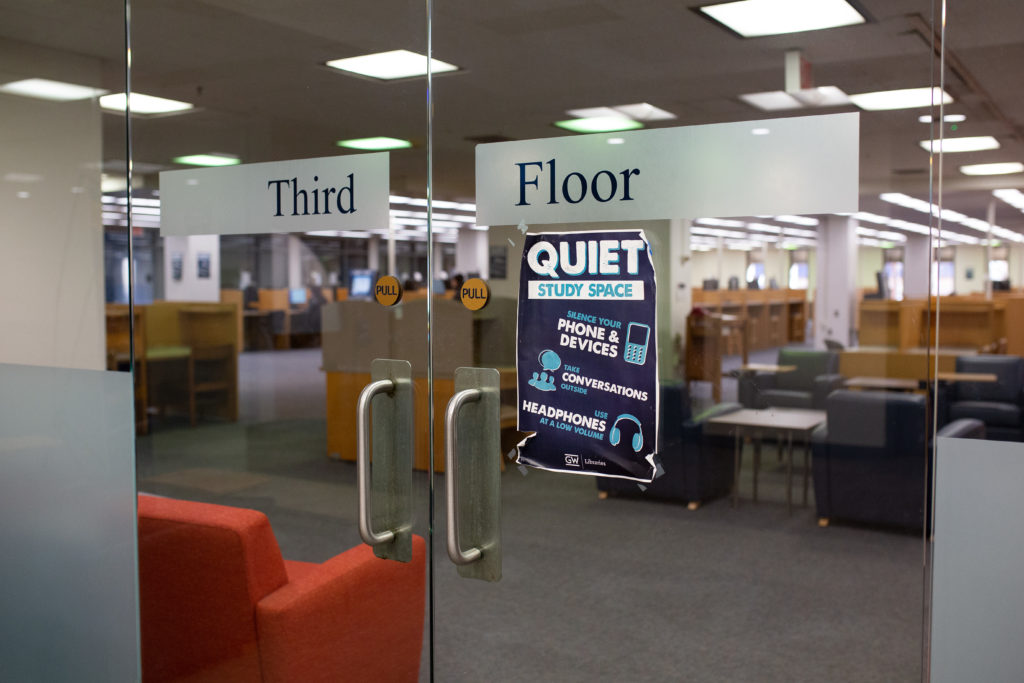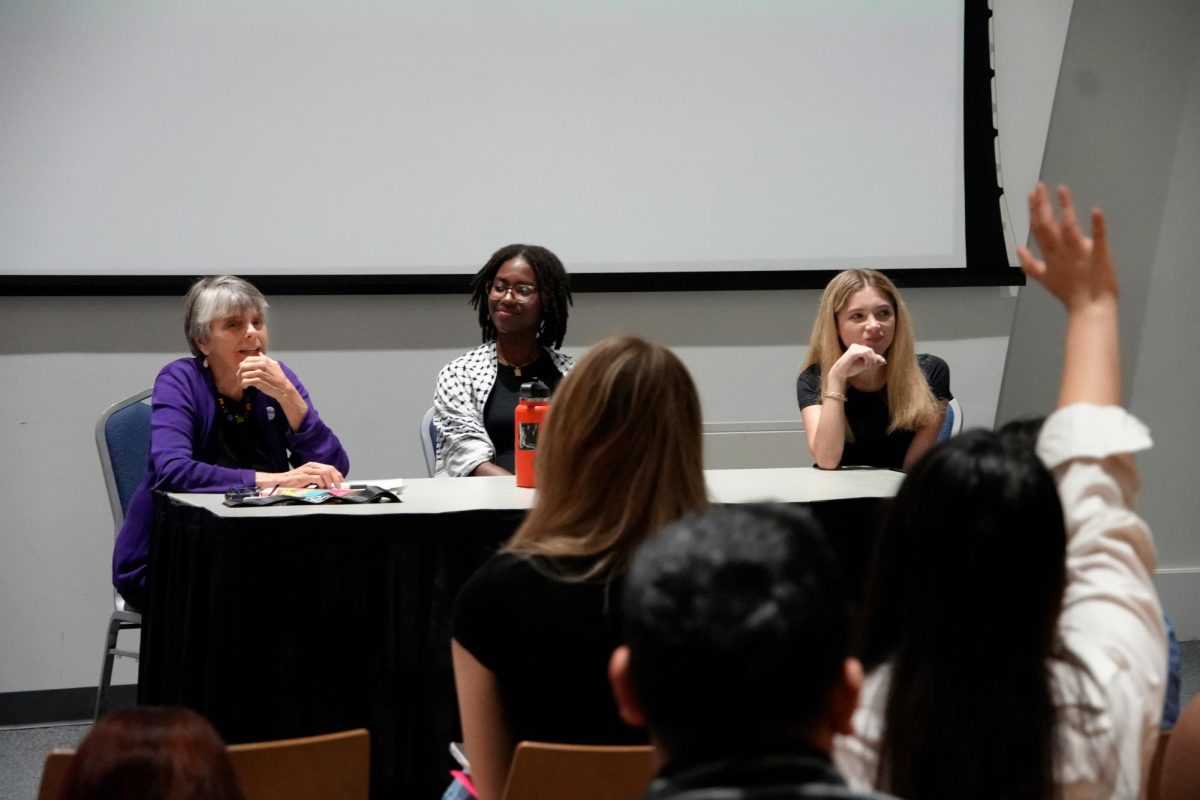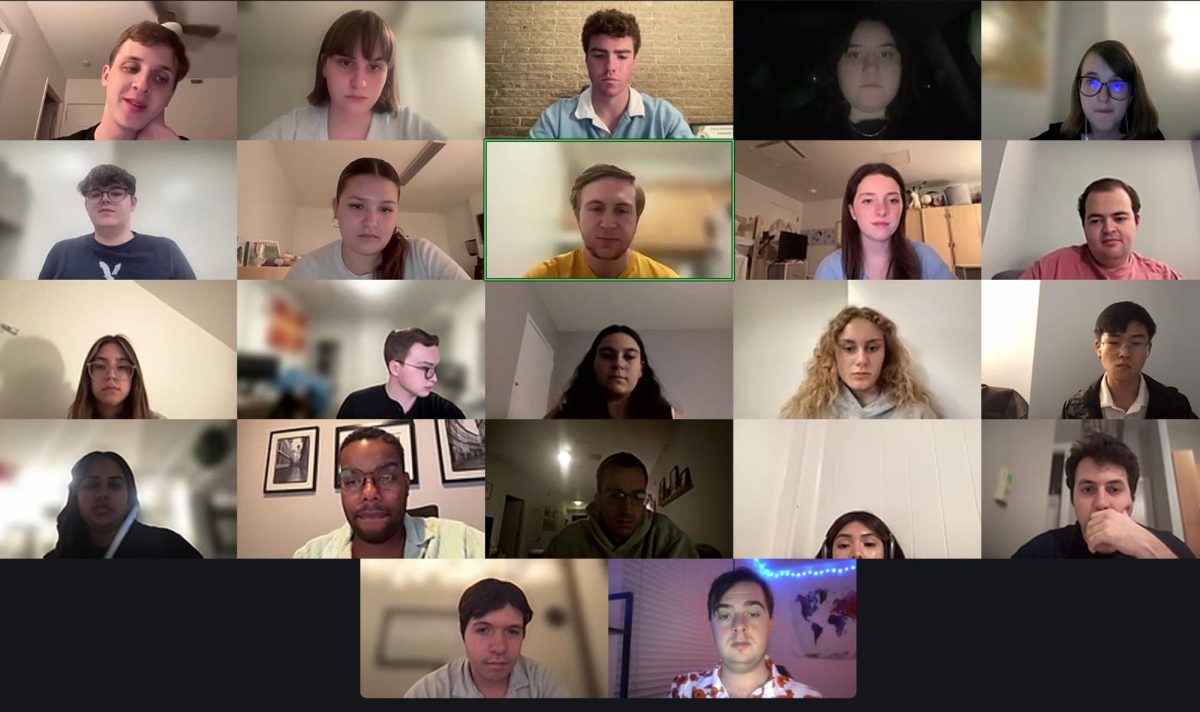While students left the District for vacation or trips home, officials added nearly 90 additional study spots to Gelman Library.
The University revamped the first and third floors of the library over spring break, installing 57 new individual study cubicles on the third floor and 32 new seats on the first. Officials and students said expanding seating in the library will provide more study space and address the ongoing issue of a lack of seating options on campus.
University spokeswoman Maralee Csellar said library staff also applied fresh paint and added furniture in the library, which requires regular upkeep from inevitable “wear and tear.” She said library upgrades occur “as funding becomes available.”
“When resources are available, Libraries and Academic Innovation staff determine what refreshes can be done to keep the environment one that enables students to succeed,” Csellar said in an email.
She said the library still relies on the student library donation to fund updates to the “study environment,” which includes chairs, whiteboards and computers. Officials made the $100 student library donation an “opt-in” feature on tuition bills this year after many students complained that they weren’t aware they were automatically charged each semester, but faculty estimated that the University would lose more than $1 million as a result of the change.
“Libraries and Academic Innovation constantly assess how Gelman and Eckles libraries can continue to meet changing needs of students and faculty,” Csellar said.
She said staff removed shelving and reconfigured furniture to make room for the new seats and study spaces. A Faculty Senate report in December 2017 found that the library can only seat up to 6 or 7 percent of the student body at a time, prompting library officials to assess space concerns and develop a plan to renovate the library in small stages.
“As staff review feedback from students and faculty and understand the need for additional space, they continually look for ways to introduce additional seating,” she said.
Students who use the library said the new study cubicles on the third floor will help them concentrate since the additional individual spaces alleviate crowding on Gelman’s most social floor.
Francesca Edralin, a freshman studying international affairs, said the new set of individual study cubes will help prevent distractions while studying.
“I feel like when I go to Gelman, I’m not there to socialize, I’m just there to do my work and concentrate,” she said. “I like the study cubes. You’re focused on your own thing, you can’t really see anyone else, you’re pretty much there to do your homework and have that solitude and that privacy.”
Edralin, who lives on the Mount Vernon Campus, said she finds individual study space easily in Eckles Library or Ames Hall but has had trouble finding individual study cubicles in Gelman this year.
“It’s a blessing to even find one that’s actually open,” she said. “I would definitely like there to be more, or maybe have them more at other tables, too. I definitely think they help with focusing.”
Melissa Schwab, a freshman studying political science and human services, said the study cubicles will help lower the noise level on the third floor.
“I feel like a lot of times people forget it’s a quiet floor, because I know when I go up there I forget it’s a quiet floor,” she said. “When I was up there a couple days ago, I was talking in a low whisper, but I was talking because I was sitting at a table, so I guess the cubicles really foster a sense of quietness.”
Library experts said adding individual seating helps students concentrate on their studies and adds space for more students to work.
David Banush, the dean of libraries at Tulane University, said individual study cubes help students avoid unwanted social interactions while studying.
“If you’re sitting in one of these carrel-like spaces that has some separation around it, it’s not as easy to be interrupted,” he said.
Charles Eckman, the dean of libraries at the University of Miami, said libraries across the country have moved physical collections to make more room for a variety of study spaces, including collaborative, quiet and silent study areas.
“I know at our library, there’s never enough seating, it seems,” he said. “We have students who are really looking for a variety of spaces in which to study, as well as spaces in which they can collaborate with other students and engage with other students.”





